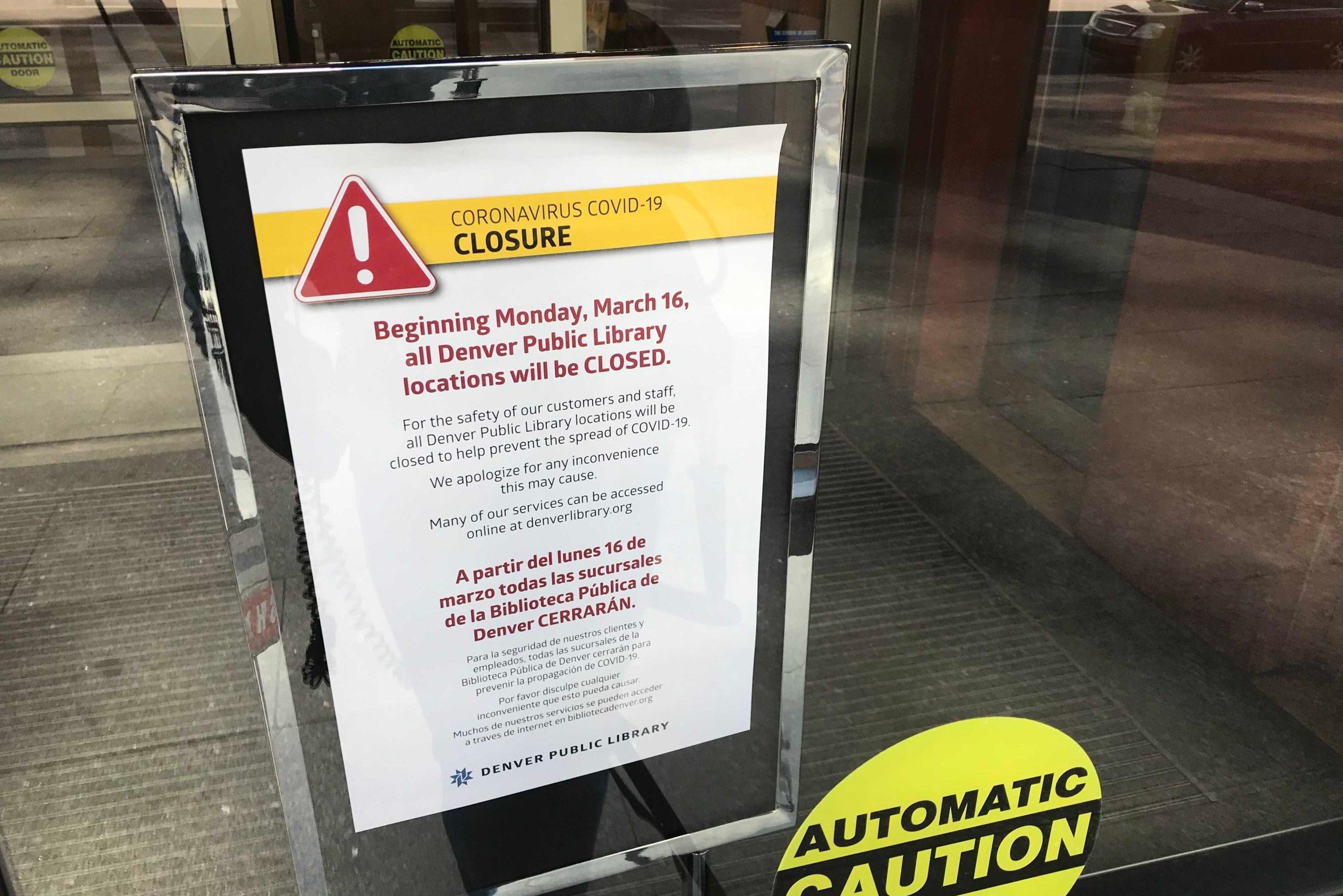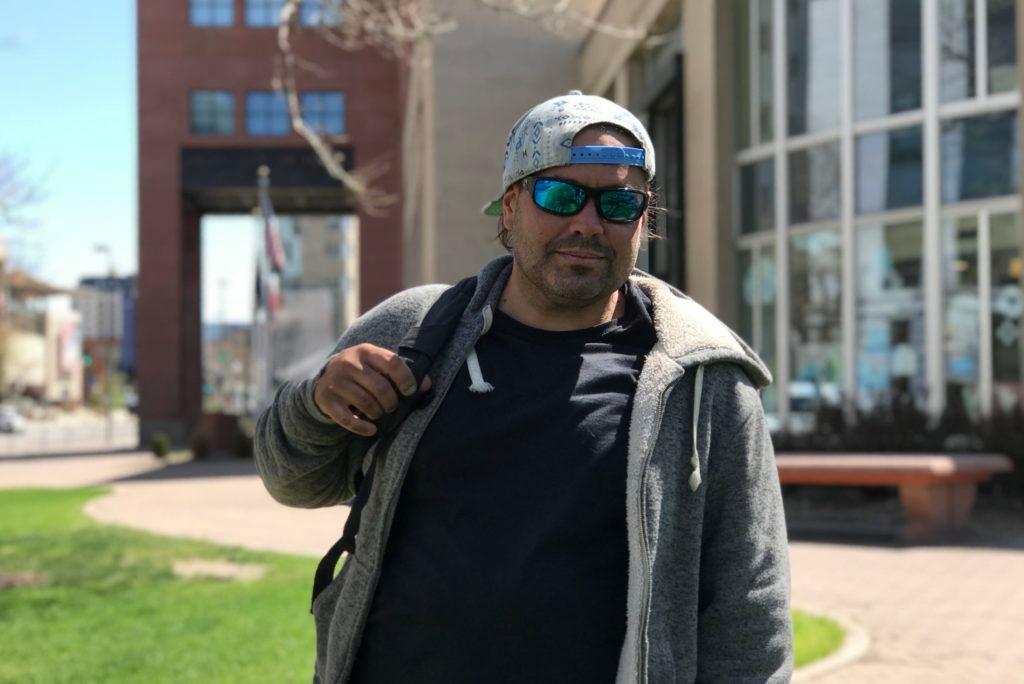
Tim, one of many Denverites experiencing homelessness, sat in the grass outside of the Central Library in Civic Center. He had his backpack, hat and sunglasses, but his phone went missing a week ago. It’s hard to keep one when you live on the streets, since “they get lost and stolen quite a bit.”
He said it’s also hard to keep a phone charged. He’d usually go to the library to do that, but it’s closed due to the COVID-19 pandemic.
“I check my emails, my Facebook. That's the best way for me to stay in contact with my family cause most of them are in New Hampshire and Florida,” Tim said about how the library keeps him connected.
He also misses the books, the people and the community. It’s been nearly two months since Denver’s libraries closed and for Tim, it’s made life a lot harder.
“I really would like to see the library back open as soon as possible. I don't understand why it's still closed,” he said. “I think that it's just as essential as anything else, if not more so than other things.”

The Denver Central Library plays an unofficial role as the city’s largest day shelter. Libraries are often the only place a person experiencing homeless can access the internet. With branches closed, many unhoused people are without a way to access essential resources.
Elissa Hardy, the library’s community resource manager, leads a team of social workers and peer navigators who support these patrons by connecting them to housing and food or helping with job searches.
She’s worried for those who can no longer come to the library to get that support. Her team connects with around 350 people each month. She said that number has dropped since the library has closed, to a total of 100 calls with patrons who have access to a phone.
“Those contacts have slowly continued to decrease though over the weeks,” Hardy said.
In an attempt to reach more people, the library’s main phone number acts as a hotline to connect with both librarians and social workers. Hardy said the team has only heard from a few folks this way. She notes the building’s wifi is kept on so it can be accessed outside.
Hardy said the city should find ways to get unhoused people access to the internet as the pandemic continues. She suggests looking to cities that supply free wifi and figuring out ways “to make sure people have phones, laptops or whatever it might be, so they can connect.”
It’s an idea that seems especially important right now as thousands of Coloradans lose work. Internet access means the ability to file for unemployment, look for a new job, apply for state and federal services or secure a stimulus check — a challenge that Tim hadn’t overcome yet without the library.
Lisa Raville, the executive director of the Harm Reduction Action Center, which runs the city’s clean needle program, said the center “noticed that was a need with our community because they didn't really have access on their phones and they didn't have access to the library.”
With their health education classes canceled, the center instead used the time to help people get their stimulus checks. They’ve held more than 60 one-on-one appointments and Raville is concerned there are a lot of unhoused folks who haven’t been able to secure their federal aid, “because it’s such an online process.”
The Colorado Coalition for the Homeless has loaned out more than 400 phones so people can make calls and have some internet access. The coalition’s Cathy Alderman is concerned unhoused people can’t stay informed about COVID-19 or even the 2020 Census without libraries.
“They don't necessarily know that there's been an order to wear a mask,” she said. “I think libraries can actually serve as that kind of resource by notifying folks, who are kind of cut off from everybody else, of newsworthy events and public health orders.”
Saint Francis Center, one of Denver’s largest day shelters, saw a 25 percent increase in visitors when spaces like the library shut down — pushing more people into a single space, right as social distancing became the order of the day. That number has leveled out now that the city has opened emergency shelter space at the National Western Complex.
Andrew Sprinks, the development director at Saint Francis, said there is plenty of needed daily services, like showers and mail, at the center, but they don’t have computers.
“We always defer to the libraries for that service,” Spinks said. “If somebody came in and wanted to do a job search we would say, ‘Hey, you should go down to the library.’”
With the libraries closed, more folks come in frustrated and looking for help. Social services director Midori Higa said most are “kind of up in arms, like, ‘Well, how am I supposed to do anything if I can't go to the library? I don't have a computer.’”
Higa is concerned about the long term impacts on unhoused people going months without a reliable place to get online, especially when a virtual connection is a lifeline for many in a socially-distanced world.









